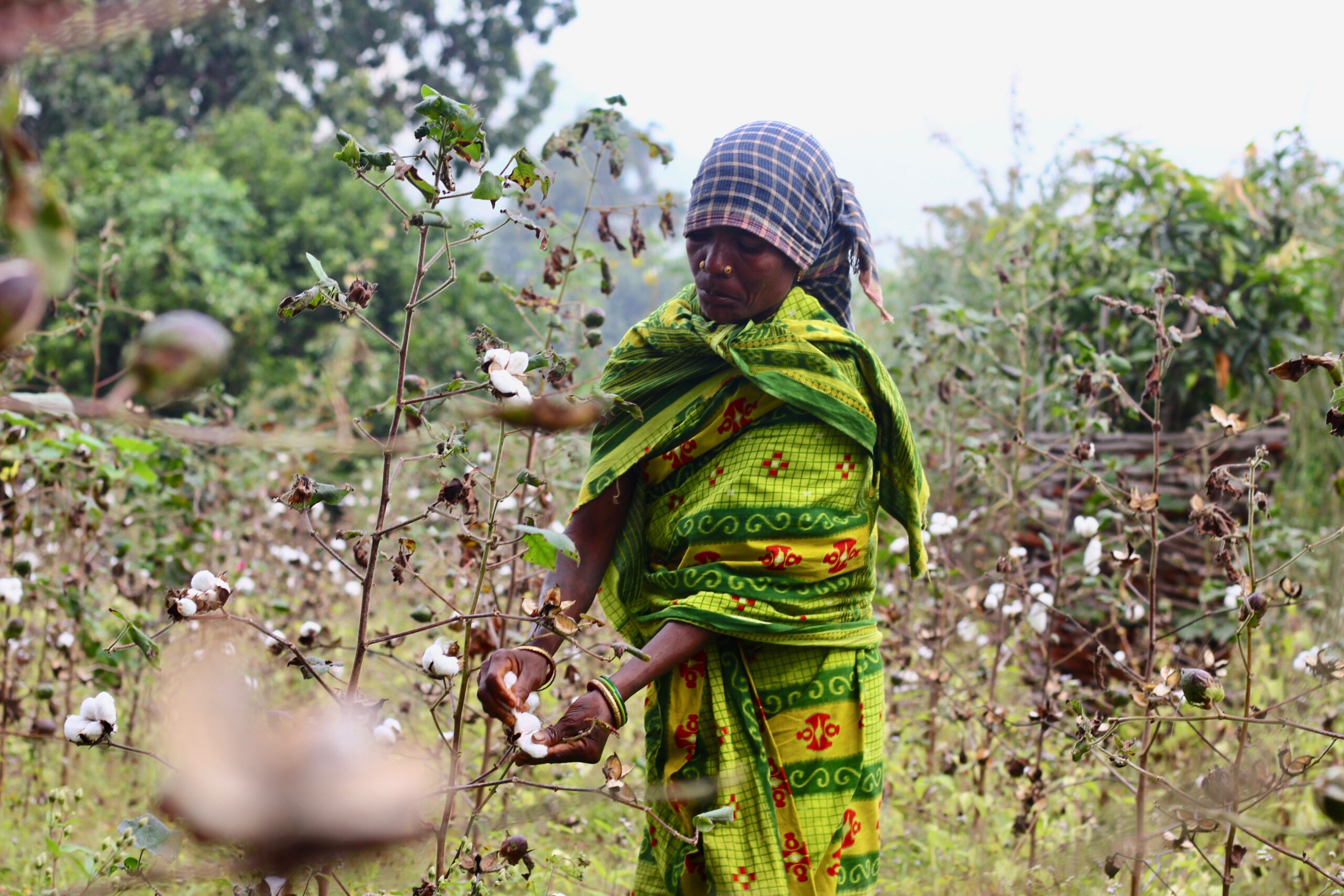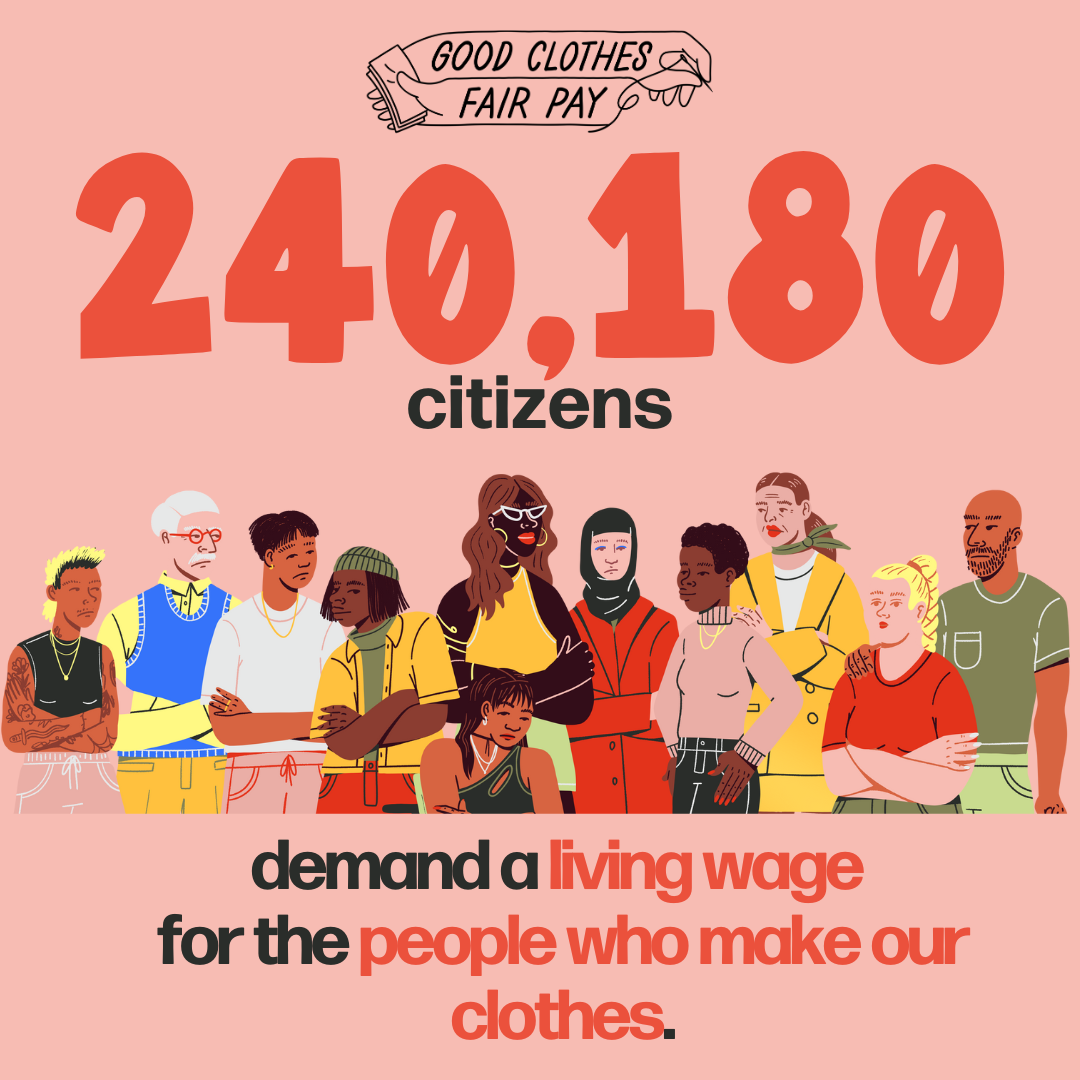Open Letter to EU Decision-makers on the EU contribution to the UNFCCC COP29 and the advent of a Global Green Deal
To:
President of the European Commission, H.E. Ursula von der Leyen
President of the European Parliament, H.E. Roberta Metsola
Head of Presidency of the Council, H.E. Prime Minister Viktor Orbán
Ministers of Environment of the EU Member States
President of the European Economic and Social Committee, H.E. Oliver Röpke
President of the Committee of the Regions, H.E. Vasco Alves Cordeiro
Brussels, 10 July 2024
Your Excellencies, We, the undersigned, representatives of more than 2,000 Fair Trade organisations in the international Fair Trade movement, believe that the upcoming UNFCCC COP29 in Baku will mark a turning point in taking forward global efforts to meet the Paris Agreement’s objectives. In deciding to initiate the New Collective Quantified Goal (NCQG) initiative at COP26, UN parties committed to setting new conditions for boosting means of implementation and placing global justice at the core of the international efforts towards climate change mitigation and adaptation. Enhancing ambition (1st pillar of action of the COP29 Presidency) is integral to enabling global action (2nd pillar of action of the COP29 Presidency). However, it is increasingly clear that meaningful progress towards mitigation and adaptation is impossible without concrete steps on global justice and finance. To remain a global leader in climate action, the EU must go to Baku with a concrete agenda of boosting climate finance for Southern countries and of global justice integrated into the EU’s own climate and trade policies.
With the 1.5°C objective slipping beyond reach, bigger steps are urgent. This implies urgently enhancing National Determined Contributions (NDCs) and following up on the UAE consensus, but none will stand any chance to progress if COP29 isn’t setting the pace for a more profound and fair global transformative agenda. The Fair Trade Movement urges EU leaders attending COP29 to take inspiration for concrete action in the Call to Action for a Global Green Deal we issued in February in cooperation with SOLIDAR. Lowering emissions to achieve the objectives of the Paris Agreement is a global effort and Southern countries must be given the means to both reduce emissions and to protect their people from harsh climate impacts that they have not caused themselves. The Global Green Deal is an outline of fairer cooperation between the EU and its partner countries towards exactly this end. SMEs and farmers in Low and Middle Income Countries (LMICs) are not merely trading partners to the EU – under the right conditions, they are drivers of positive change towards more sustainable production. Fairer financing and fairer sharing of the burden of climate risks are needed to boost entrepreneurship of alternative business models and future-proof SMEs that are a vital component of a new, sustainable economy.
The Global Green Deal proposes five key policy changes:
- Enhancing access to quality, affordable, and long-term financing for EU partner countries in the Global South, in particular through a reform of the Global Financial Architecture,
- Incorporating a mandatory Just Transition strategy into the Green Deal, Promoting policy consistency for sustainable development by further reforming EU Trade policy and reducing negative spillover effects,
- Integrating Fair Trade practices and supporting Fair Trade Enterprises to balance benefits across international supply chains,
- Transforming the Green Deal into a catalyst for revising the EU economic model towards sustainability.
Similar calls have been made for an improved European Green Deal such as the European Pact for the Future. The Global Green Deal[ 1] is, however, unique in addressing the consumption externalities of the EU model – which clearly obstructs EU partner countries in building their own climate resilience – and the absolute need to redistribute mitigation and adaptation efforts across the international community. The potential of and the need for a Global Green Deal is clear to us from the massive support from ambassadors of countries in the Global South, where this reality is a daily experience. A group of African ambassadors has officially invited the Fair Trade Movement to present the Global Green Deal at their next meeting in November. High-level political representatives and MEPs similarly recognise and support this set of measures.
The proposals rely heavily on the well-documented experience of Fair Trade and its ability to foster regenerative agriculture, sustainable production and consumption patterns, and social and environmental justice. Fair Trade enterprises across the world not only allow producers, workers and farmers to receive stable and fair incomes, they also drive effective societal and economic change since their business models allow them to prioritise environmentally and socially sound practices over profit-maximisation. The Fair Trade Movement has managed to raise public awareness and concern on the intertwined social, economic and environmental values of our societies and whether they are being upheld by business conduct and state policy. From practical engagement of citizens as consumers through the vast network of Fair Trade Towns and Universities, we have learned the importance of aligning hearts and minds with practical action on the long journey towards climate neutrality.
The current geopolitical instability is a clear signal that international relationships must be strengthened and reformed to enable a truly cooperative approach to climate action. The EU has a political and moral responsibility to recognise that its climate leadership will only be meaningful with more and better support to developing countries in their climate efforts. The types of fairer and closer cooperation – through the private sector as well as on the state level – outlined in the Global Green Deal are vital components of such support. The Fair Trade Movement calls on the EU to transform the European Green Deal into a Global Green deal by:
- Substantially reducing the externalities embedded in EU policies to enable non-EU stakeholders more leeway in addressing climate change themselves.
- Aligning its COP29 position with the principles of fairness, equity and efficiency contained in the Global Green Deal
- Ensuring that its sustainability laws are implemented in ways that further support the green transition in a fair and just way in its partner countries.
The Global Green Deal can trigger the re-creation of an enabling space for CSOs, local and indigenous communities, ethical business models, SMEs, trade unions and citizens from North and South to contribute to achieving international climate goals. Placing it at the centre of the EU agenda in Baku will demonstrate a strong, credible and legitimate position in the ensuring negotiation.
Looking forward to working with you on advancing fairness and equity. We remain at your disposal for any further information you may need.
Yours faithfully,
Jorge Conesa Managing Director, Fair Trade Advocacy Office
Mikkel Kofod Nørgård Regional Coordinator, World Fair Trade Organization Europe
Leida Rijnhout Chief Executive, World Fair Trade Organization
Sandra Uwera Murasa Global CEO, Fairtrade International
[ 1] The Committee of the Regions adopted on 19 June 2024 an opinion on a Global Green Deal that also focuses on the international dimension of the climate efforts
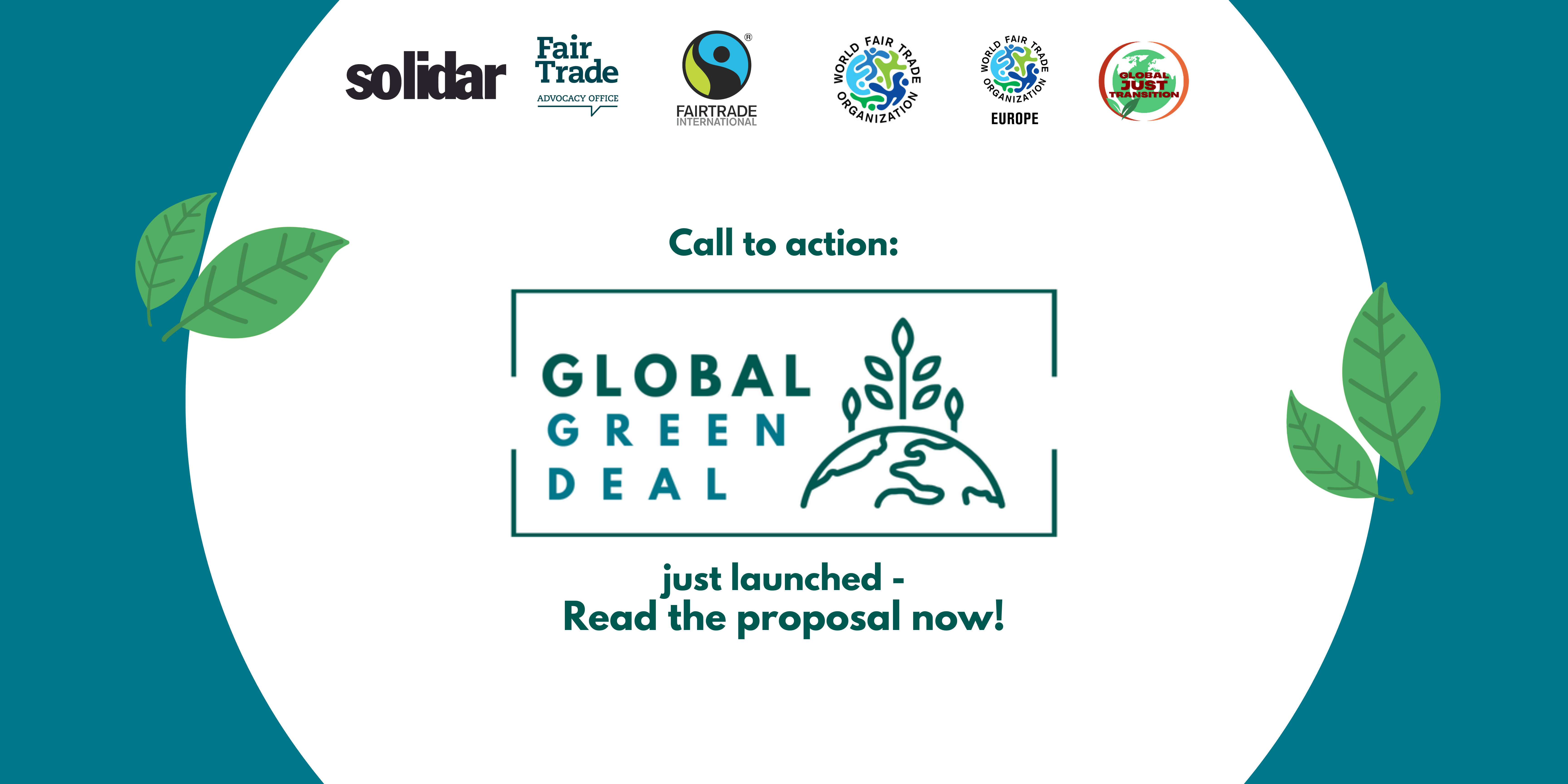
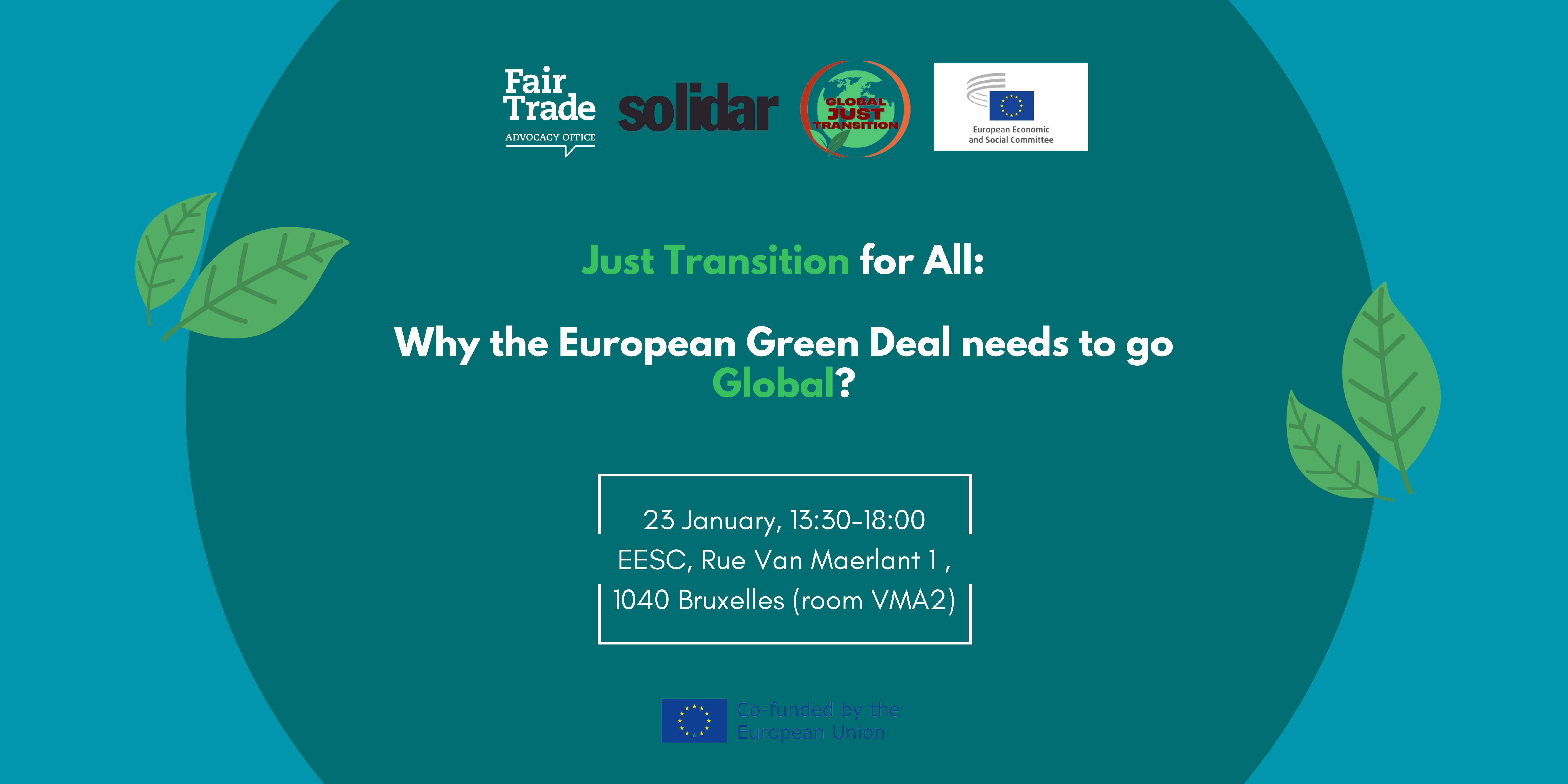

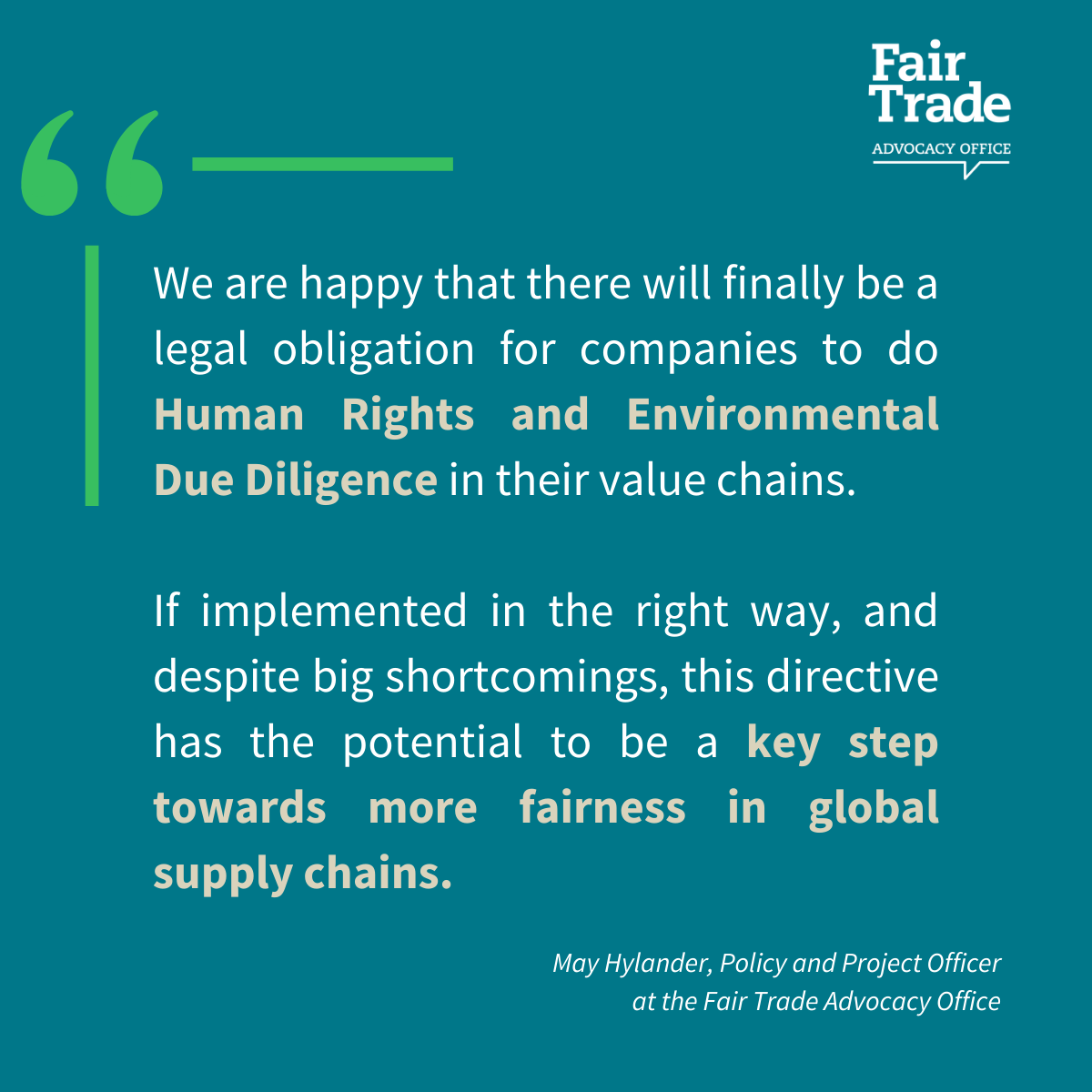 Brussels, 14 December 2023 – Today marks a significant milestone as a political agreement was successfully concluded on the Corporate Sustainability Due Diligence Directive (CSDDD). This groundbreaking directive will require companies operating within the EU to undertake mandatory human rights and environmental due diligence throughout their value chains.
Brussels, 14 December 2023 – Today marks a significant milestone as a political agreement was successfully concluded on the Corporate Sustainability Due Diligence Directive (CSDDD). This groundbreaking directive will require companies operating within the EU to undertake mandatory human rights and environmental due diligence throughout their value chains.
